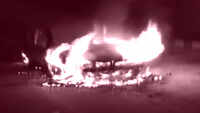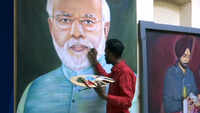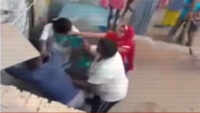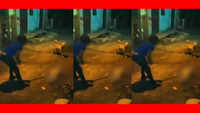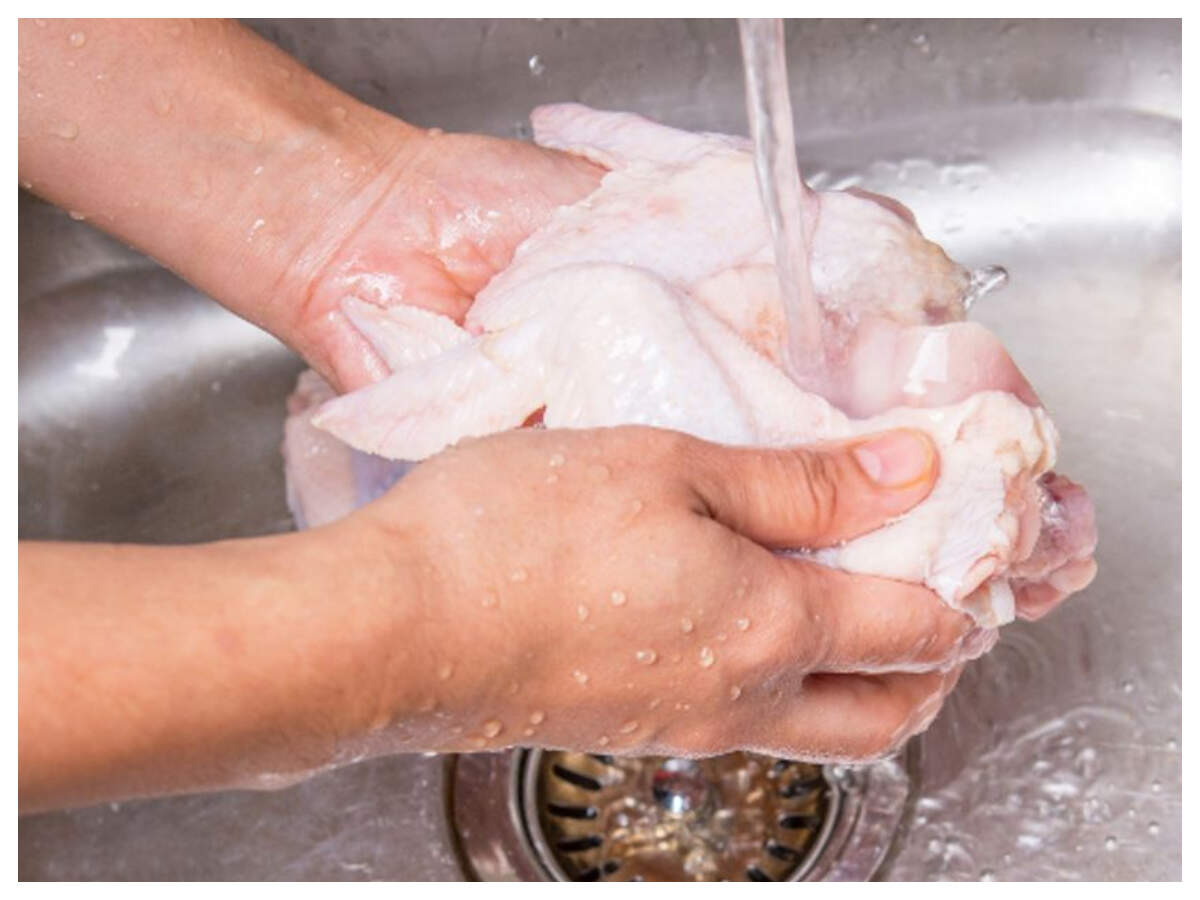
Mysuru: For 65-year-old Ramakrishna, a businessman from Mandya, it was a rare gift from his wife Mamatha on their wedding anniversary—she donated one of her kidneys to her husband, who was diagnosed with renel failure in 2012. Few minutes before the transplant, the couple also celebrated their wedding anniversary at their bedside in the hospital.
Though Ramakrishna, who was on dialysis, got a fresh lease of life, the transplant was not that easy. It was one of the two rare blood group incompatabile (ABOi) kidney transplants conducted at Columbia Asia Hospital, Mysuru, recently. In an ABOi incompatible kidney transplant, the blood group of the donor and the recipient are not compatible (do not match).
“Life came to a standstill after I was diagnosed with kidney failure seven years ago. I visited multiple hospitals looking for solutions. Dialysis, though life-saving, was draining me emotionally and financially. I had not heard of ABOi transplant before and never knew that such a surgery could be done in Mysuru. I just trusted my doctors and went for it. ABOi procedure is a new hope of life for all kidney failure patients like me,” said Ramakrishna. He also thanked his wife Mamatha for donating her kidney.
“For me, my husband is everything. When I came to know that I can also donate my kidney, without a second thought I told my husband that I will donate my kidney. Today he is doing well. I want to thank doctors and other staff for their efforts,” said Mamatha.
In the second case, Kodandaramaiah, a 64-year-old retired LIC agent, was diagnosed with kidney failure last year. He also started undergoing dialysis. His wife Kamalamma (53), who was A+, was willing to donate her kidney but it was not matching. After extensive counselling on ABO incompatible transplant, the couple were ready and they were shifted for surgery. Post surgery, both Kodandaramaiah and Kamalamma are doing fine and are under medications.
Dr PM Uthappa, chief nephrologist and transplant physician, Columbia Asia Hospital, Mysore said: “The ABOi procedure opens up possibilities of transplant for patients who have incompatible donors but it is a lot of hard work. ABOi transplants are tricky, complicated and very technical. We are happy that it all worked out for our patients.”
Due to the shortage of organ donors and rise in number of people suffering from end-stage renal diseases, ABOi transplantation should be considered, if there is an incompatible donor, he said.
Though Ramakrishna, who was on dialysis, got a fresh lease of life, the transplant was not that easy. It was one of the two rare blood group incompatabile (ABOi) kidney transplants conducted at Columbia Asia Hospital, Mysuru, recently. In an ABOi incompatible kidney transplant, the blood group of the donor and the recipient are not compatible (do not match).
“Life came to a standstill after I was diagnosed with kidney failure seven years ago. I visited multiple hospitals looking for solutions. Dialysis, though life-saving, was draining me emotionally and financially. I had not heard of ABOi transplant before and never knew that such a surgery could be done in Mysuru. I just trusted my doctors and went for it. ABOi procedure is a new hope of life for all kidney failure patients like me,” said Ramakrishna. He also thanked his wife Mamatha for donating her kidney.
“For me, my husband is everything. When I came to know that I can also donate my kidney, without a second thought I told my husband that I will donate my kidney. Today he is doing well. I want to thank doctors and other staff for their efforts,” said Mamatha.
In the second case, Kodandaramaiah, a 64-year-old retired LIC agent, was diagnosed with kidney failure last year. He also started undergoing dialysis. His wife Kamalamma (53), who was A+, was willing to donate her kidney but it was not matching. After extensive counselling on ABO incompatible transplant, the couple were ready and they were shifted for surgery. Post surgery, both Kodandaramaiah and Kamalamma are doing fine and are under medications.
Dr PM Uthappa, chief nephrologist and transplant physician, Columbia Asia Hospital, Mysore said: “The ABOi procedure opens up possibilities of transplant for patients who have incompatible donors but it is a lot of hard work. ABOi transplants are tricky, complicated and very technical. We are happy that it all worked out for our patients.”
Due to the shortage of organ donors and rise in number of people suffering from end-stage renal diseases, ABOi transplantation should be considered, if there is an incompatible donor, he said.
Elections 2019
Trending Topics
LATEST VIDEOS
More from TOI
Navbharat Times
Featured Today in Travel
Quick Links
Lok Sabha Election Schedule 2019Lok Sabha Election NewsDelhi Capitals teamMI team 2019Rajasthan Royals 2019RCB team 2019Maharashtra Lok Sabha ConstituenciesBJP Candidate ListBJP List 2019 TamilnaduShiv Sena List 2019AP BJP List 2019Mamata BanerjeeBJP List 2019 MaharashtraPriyanka GandhiBJP List 2019 KarnatakaAMMK Candidate List 2019BJP List 2019 WBLok Sabha Elections in Tamil NaduBSP List 2019 UPNews in TamilLok Sabha Poll 2019Satta Matka 2018PM ModiMahagathbandhanNagpur BJP Candidate ListChandrababu NaiduTamil Nadu ElectionsUrmila MatondkarNews in TeluguMadras High CourtTejashwi YadavArvind KejriwalTejasvi SuryaPawan KalyanArvind KejriwalYogi AdityanathJaya PradaSatta King 2019Srinagar encounter
Get the app
